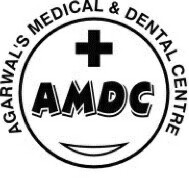Diet and nutritional consultation
A diet and nutritional consultation is beneficial for individuals seeking guidance on maintaining a healthy and balanced diet, managing specific health conditions, or addressing nutritional concerns. Here are steps you can take for a diet and nutritional consultation: Schedule an Appointment: Consult with a registered dietitian, nutritionist, or healthcare professional who specializes in nutrition. They can provide expert advice tailored to your individual needs. Assessment and Health History: During the consultation, expect a comprehensive assessment of your current dietary habits, medical history, lifestyle, and specific health goals or concerns. Goal Setting: Clearly articulate your nutritional goals, whether it's weight management, managing a health condition (e.g., diabetes, heart disease), improving energy levels, or enhancing athletic performance. Dietary Analysis: The dietitian may analyze your current dietary intake to identify strengths, weaknesses, and areas for improvement. Personalized Nutrition Plan: Based on the assessment, the professional will develop a personalized nutrition plan that aligns with your goals, preferences, and any dietary restrictions. Education: Receive education on nutrition principles, portion control, food choices, and how certain nutrients impact health. This may include information about macronutrients (carbohydrates, proteins, fats) and micronutrients (vitamins and minerals). Meal Planning: Get assistance with meal planning, including suggestions for balanced meals and snacks that meet your nutritional needs. Behavioral Strategies: Discuss behavioral strategies to help you make sustainable changes to your eating habits. This might involve addressing emotional eating, developing healthier food-related behaviors, and establishing realistic goals. Follow-Up Appointments: Schedule follow-up appointments to track progress, make adjustments to the nutrition plan if necessary, and address any challenges or questions. Specialized Conditions: If you have specific health conditions like diabetes, hypertension, or food allergies, the dietitian can tailor recommendations to manage these conditions effectively. Nutritional Counseling: Receive counseling on making informed food choices, understanding food labels, and navigating social or environmental factors that may impact your diet. Lifestyle Integration: Discuss ways to integrate your nutrition plan into your daily life, considering factors such as work schedule, social activities, and family life.

